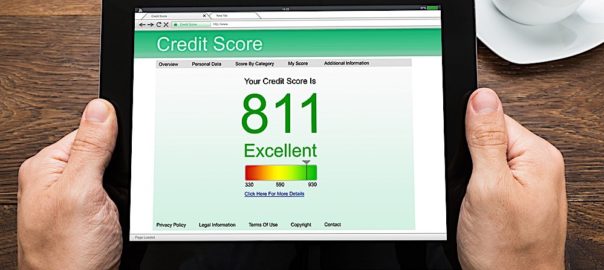4 Things You Can Do To Improve Your Credit Score
By Paul Esajian on November 27, 2017
Your credit score is a hidden factor that can greatly impact your business. Whether you currently utilize credit or not there will be times when you will need to apply for a loan or use credit for growth. Without a strong credit score you may be left with limited options. You will be forced to pay a higher interest rate or settle for limits that don’t really fit your needs. Fortunately, you directly control what is on your credit report and how it is scored. Many people assume that timely payments are the only factor that impact your score. Timely payments are important, but they only make up roughly 35% of your FICO number. Simply paying everything on time is not enough to get the score you desire. Regardless of what your current score is there are things you can do that can have a short and long-term impact. Here are four things you can, and should, do to improve your credit score today.
- Review your credit. If you are like most Americans, you only review your credit when you apply for financing. If there is an erroneous or incorrect item on your report it is often too late to do something about it. Sure, you can remove the item, but this may take several weeks, if not months. By that time your desire for financing may be gone or you will be forced to scramble in another direction. You should view your credit at least a few times a year. It is a good idea to sign up for a credit monitoring service that provides you with alerts every time a new credit item is added. With the growing amount of fraud this can nip any irregular activity in the bud. It is always difficult removing an item once it is on your credit. There are three bureaus you must reach out to and providing items to show that an account is not yours can be tricky. When, and if, they accept your documentation it could be months before the item is removed and your score is updated. You are much better off staying on top of your report and preventing new items rather than trying to take them off.
- Automatic payments. Timely payments are the single biggest factor impacting your score. Sure, we said that timely payments alone will not give you a strong score but without them your score would sink. 35% of your score is a big enough number that even one late payment has an impact. In a perfect world you would pay every bill as soon as it comes in. However, real life doesn’t always work this way. You may have to juggle funds and wait to pay certain bills. However you manage your accounting you need to recognize that just one late payment, on a small credit card you barely use will knock your score. If you have the ability you should strongly consider setting up automatic payments. Not have the money to pay a bill is one thing but having it and simple forgetting about it is unmistakable. You may be forced to live lean at times, but a late payment sticks on your credit report forever.
- Low balances. If you have been relying on credit you need to slowly ween yourself off. You can pay everything on time but if you are maxed out your score will be much lower than you anticipate. The availability of credit on your accounts is worth 30% of your score. The credit bureaus view maxed out accounts as a sign of potential financial trouble. You have no more room to borrow and will have a difficult time getting credit. Ideally, you would keep your balances under 15% of the total available credit. Whenever you get the opportunity you should look to pay down a balance. This certainly isn’t a fun way to spend money from a big closing, but it can help the overall strength of your credit report, and your business. The less you owe on your accounts, the more available balance you have and the higher your credit score will be. Making a conscience effort to reduce your balances takes a good amount of discipline but you will feel the impact on your score.
- Limit new applications. You can’t get sucked into every attractive credit opportunity that comes your way. Once you open one account you will get bombarded with emails and new credit mailings literally every day. Some cards will seem too good to be true but all of them come with some strings attached. The next time you are in your favorite department store and they offer you credit at checkout you need to decline. Not only do multiple credit checks potentially impact your score but the new account can do damage as well. As obvious as it sounds you should only use credit as a final alternative if you are in a short-term cash crunch. New accounts often lead to temptation and if you have too many cards you score will suffer.
Improving your credit doesn’t happen overnight but the impact will be felt for years. If you make a concerted effort in just six months you will see a major improvement with your score. Getting up to certain numerical benchmarks (680,700,720) can make all the difference in your rate, terms and overall loan approval.